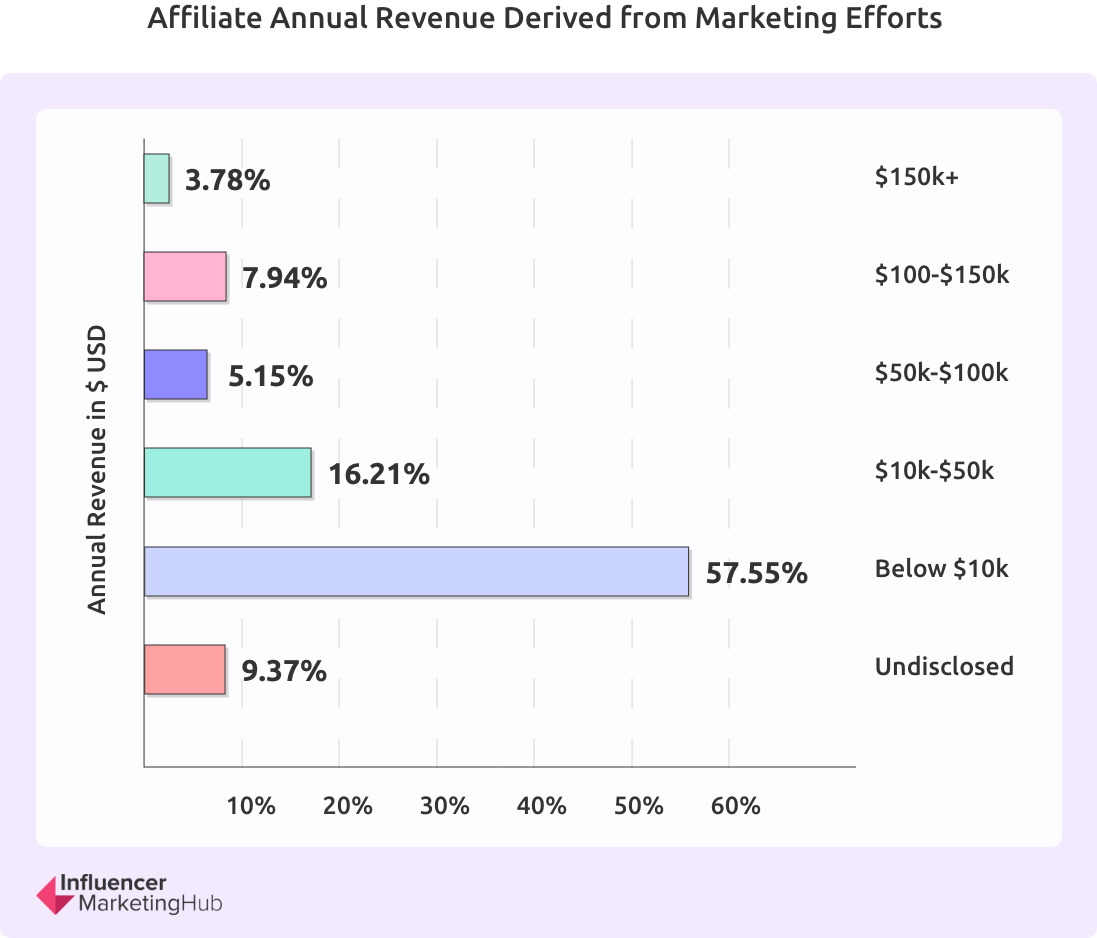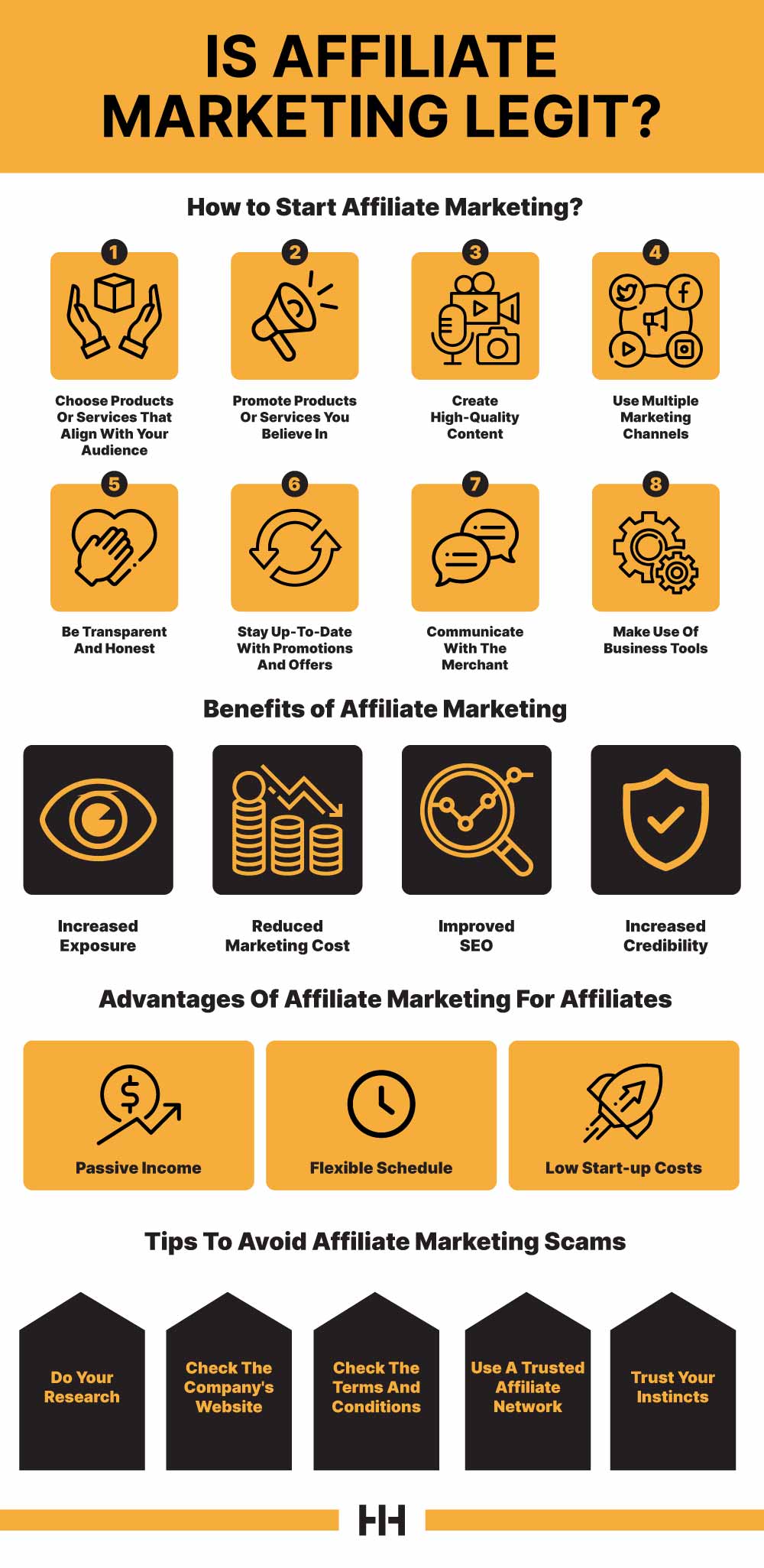Affiliate marketing has become a popular way to earn income online, but it often raises questions about its legitimacy. With countless success stories and promises of passive income, many wonder if it’s too good to be true. Critics argue that some affiliate programs are misleading or even fraudulent, while supporters highlight its potential for genuine earnings. This article explores whether affiliate marketing is a scam or a legitimate business model. By examining how it works, common pitfalls, and red flags to watch for, readers can gain a clearer understanding of this industry and make informed decisions about their involvement in affiliate marketing.
Is Affiliate Marketing a Scam?
Affiliate marketing is a legitimate business model that has been around for decades. However, like any industry, it has its share of scams and unethical practices. The key to understanding whether affiliate marketing is a scam lies in recognizing the difference between legitimate opportunities and fraudulent schemes. Legitimate affiliate marketing involves promoting products or services and earning a commission for sales or leads generated through your efforts. On the other hand, scams often promise unrealistic earnings, require upfront fees, or involve promoting low-quality or fake products.
See Also Difference Between Affiliates and Real Network Marketing?
Difference Between Affiliates and Real Network Marketing?What is Affiliate Marketing?
Affiliate marketing is a performance-based marketing strategy where individuals or companies earn commissions by promoting other people's products or services. It involves three main parties: the merchant (product creator or seller), the affiliate (promoter), and the customer. Affiliates use unique tracking links to promote products, and they earn a commission when a customer makes a purchase through their link. This model is widely used by reputable companies like Amazon, Shopify, and many others.
Common Misconceptions About Affiliate Marketing
Many people believe affiliate marketing is a scam because they encounter misleading information or fall victim to unethical practices. Some common misconceptions include:
- You can get rich overnight: This is false. Affiliate marketing requires effort, time, and strategy.
- It’s a pyramid scheme: Unlike pyramid schemes, affiliate marketing is based on actual product sales, not recruiting others.
- All affiliate programs are scams: While some programs are fraudulent, many are legitimate and offer real earning potential.
 Who Has a Stable, Easy-Going Marketing Job, and What Do You Do?
Who Has a Stable, Easy-Going Marketing Job, and What Do You Do?How to Identify Affiliate Marketing Scams
To avoid falling for scams, look out for these red flags:
- Upfront fees: Legitimate programs rarely require you to pay to join.
- Unrealistic promises: If a program guarantees massive earnings with little effort, it’s likely a scam.
- Lack of transparency: Scammers often hide details about the company, product, or payment structure.
- Poor-quality products: Promoting low-quality or fake products can damage your reputation and lead to chargebacks.
Benefits of Legitimate Affiliate Marketing
When done correctly, affiliate marketing offers numerous benefits:
- Low startup costs: You don’t need to create your own product or invest heavily.
- Flexibility: You can work from anywhere and set your own schedule.
- Passive income: Once you set up your campaigns, you can earn commissions even while you sleep.
- Scalability: You can promote multiple products and scale your earnings over time.
 What Are Great to Have Skills in Marketing?
What Are Great to Have Skills in Marketing?Tips for Succeeding in Affiliate Marketing
To succeed in affiliate marketing, follow these tips:
- Choose reputable programs: Partner with well-known companies or platforms.
- Focus on quality content: Provide value to your audience by creating helpful and engaging content.
- Build trust: Only promote products you believe in and that align with your audience’s needs.
- Track your performance: Use analytics tools to monitor your campaigns and optimize them for better results.
| Aspect | Legitimate Affiliate Marketing | Scam |
|---|---|---|
| Earnings | Based on actual sales or leads | Promises unrealistic earnings |
| Costs | No upfront fees | Requires payment to join |
| Product Quality | High-quality, reputable products | Low-quality or fake products |
| Transparency | Clear terms and conditions | Hidden details or vague information |
Is affiliate marketing really a scam?

What is Affiliate Marketing?
Affiliate marketing is a performance-based marketing strategy where individuals or companies earn commissions by promoting products or services from other businesses. It involves three main parties: the merchant, the affiliate, and the consumer. The affiliate promotes the merchant's products through unique tracking links, and when a sale is made, the affiliate earns a commission. This model is widely used in industries like e-commerce, software, and digital products.
- Merchant: The business or brand that creates the product or service.
- Affiliate: The promoter who markets the product using unique links.
- Consumer: The end-user who purchases the product through the affiliate's link.
Is Affiliate Marketing a Scam?
Affiliate marketing itself is not a scam; it is a legitimate business model used by many reputable companies. However, like any industry, there are scammers who exploit the system. These individuals or companies may use unethical practices, such as false advertising, fake reviews, or misleading claims, to trick consumers and affiliates alike. It is crucial to research and work with trusted programs to avoid falling victim to scams.
- Legitimate Programs: Many well-known companies like Amazon, Shopify, and ClickBank run reputable affiliate programs.
- Red Flags: Be cautious of programs that require upfront fees or promise unrealistic earnings.
- Due Diligence: Always verify the credibility of the affiliate program before joining.
Common Misconceptions About Affiliate Marketing
Many people believe affiliate marketing is a get-rich-quick scheme, which is a major misconception. While it can be profitable, it requires hard work, strategy, and time to build a sustainable income. Another misconception is that affiliate marketing is only for tech-savvy individuals. In reality, anyone with basic internet skills and a willingness to learn can succeed.
- Not a Quick Scheme: Success in affiliate marketing requires consistent effort and learning.
- Accessible to All: Basic skills like content creation and social media marketing are sufficient to start.
- Long-Term Commitment: Building trust and a loyal audience takes time.
How to Identify Scam Affiliate Programs
To avoid scams, it is essential to recognize the warning signs of fraudulent affiliate programs. These include lack of transparency, unrealistic promises, and poor communication. Legitimate programs provide clear terms and conditions, realistic earning potential, and reliable support.
- Transparency: Legitimate programs disclose all terms and conditions upfront.
- Realistic Promises: Avoid programs that guarantee overnight success or excessive earnings.
- Support System: Trustworthy programs offer reliable customer and affiliate support.
Tips for Succeeding in Affiliate Marketing
To succeed in affiliate marketing, focus on building trust with your audience, creating valuable content, and choosing the right products. Consistency and patience are key, as it takes time to see significant results. Additionally, staying updated with industry trends and continuously improving your skills will help you stay competitive.
- Audience Trust: Promote products that align with your audience's needs and interests.
- Quality Content: Create informative and engaging content to attract and retain followers.
- Product Selection: Choose products that are relevant and of high quality.
Is affiliate marketing really paying?

What is Affiliate Marketing and How Does It Work?
Affiliate marketing is a performance-based marketing strategy where individuals or businesses earn commissions by promoting products or services from other companies. It works through a simple process:
- Affiliate Sign-Up: Join an affiliate program offered by a company or platform.
- Promotion: Share unique affiliate links through blogs, social media, or email campaigns.
- Tracking: The company tracks clicks, sales, or leads generated through your links.
- Earnings: You earn a commission for every successful conversion.
Can You Really Make Money with Affiliate Marketing?
Yes, affiliate marketing can be profitable, but it depends on several factors:
- Niche Selection: Choosing a profitable niche with high demand and low competition is crucial.
- Audience Engagement: Building trust and engagement with your audience increases conversion rates.
- Content Quality: High-quality, valuable content attracts more traffic and boosts earnings.
- Consistency: Regular promotion and optimization are key to long-term success.
What Are the Pros and Cons of Affiliate Marketing?
Affiliate marketing has its advantages and challenges:
- Pros:
- Low startup costs.
- Flexible working hours.
- Passive income potential.
- Cons:
- Requires time and effort to build an audience.
- Dependence on third-party platforms.
- Commission rates can vary widely.
How Much Can You Earn with Affiliate Marketing?
Earnings in affiliate marketing vary significantly:
- Beginner Level: $100–$500 per month, depending on niche and effort.
- Intermediate Level: $1,000–$5,000 per month with consistent traffic and conversions.
- Expert Level: $10,000+ per month by scaling strategies and leveraging multiple income streams.
What Are the Best Strategies to Succeed in Affiliate Marketing?
To succeed in affiliate marketing, consider these strategies:
- Choose the Right Products: Promote products that align with your audience's needs and interests.
- Leverage SEO: Optimize your content for search engines to drive organic traffic.
- Use Multiple Channels: Diversify your promotion methods, including blogs, social media, and email marketing.
- Analyze Performance: Regularly review your metrics to identify what works and improve underperforming areas.
Is affiliate marketing like a pyramid scheme?

What is Affiliate Marketing?
Affiliate marketing is a performance-based marketing strategy where individuals or companies earn commissions by promoting products or services from other businesses. It involves three main parties:
- Merchant: The company or brand that sells the product or service.
- Affiliate: The individual or entity that promotes the merchant's products.
- Consumer: The person who purchases the product through the affiliate's referral link.
Affiliates earn a commission only when a sale is made or a specific action is completed, such as a lead generation or click.
What is a Pyramid Scheme?
A pyramid scheme is an illegal business model that primarily focuses on recruiting participants rather than selling legitimate products or services. Key characteristics include:
- Recruitment Focus: Participants are encouraged to recruit others to join the scheme.
- Lack of Real Product: Often, there is no genuine product or service being sold.
- Unsustainable Structure: The scheme collapses when recruitment slows down, leaving most participants at a loss.
Pyramid schemes are considered fraudulent and are illegal in most countries.
Key Differences Between Affiliate Marketing and Pyramid Schemes
Affiliate marketing and pyramid schemes are fundamentally different in structure and purpose:
- Revenue Source: Affiliate marketing generates income through actual product sales, while pyramid schemes rely on recruitment fees.
- Legitimacy: Affiliate marketing is a legal and widely accepted business model, whereas pyramid schemes are illegal.
- Focus: Affiliate marketing focuses on promoting products, while pyramid schemes prioritize recruiting new members.
Why Affiliate Marketing is Not a Pyramid Scheme
Affiliate marketing is often misunderstood, but it is not a pyramid scheme for several reasons:
- Product-Centric: Affiliates promote real products or services, and commissions are tied to actual sales.
- No Recruitment Pressure: Affiliates are not required to recruit others to earn income.
- Transparency: Affiliate programs are transparent about how earnings are generated and distributed.
Common Misconceptions About Affiliate Marketing
Many people confuse affiliate marketing with pyramid schemes due to a lack of understanding. Here are some misconceptions clarified:
- Recruitment Misunderstanding: Affiliates do not need to recruit others to earn money; their income comes from sales.
- Legitimacy Confusion: Affiliate marketing is a legitimate business model used by reputable companies worldwide.
- Income Potential: While some may view affiliate marketing as get-rich-quick, it requires effort, strategy, and time to succeed.
Is affiliate marketing a legit job?

What is Affiliate Marketing?
Affiliate marketing is a performance-based marketing strategy where individuals, known as affiliates, promote products or services offered by companies. In return, affiliates earn a commission for every sale, lead, or action generated through their referral links. This model is widely used across industries and is considered a legitimate way to earn income online.
- Affiliates promote products through blogs, social media, or websites.
- They earn commissions based on predefined terms set by the advertiser.
- It requires no inventory or product creation, making it accessible to many.
Is Affiliate Marketing a Legitimate Career?
Yes, affiliate marketing is a legitimate career for those willing to invest time and effort. Many companies, including well-known brands, rely on affiliate programs to drive sales and expand their reach. Affiliates can earn a full-time income if they build a strong audience and promote high-converting products.
- It is recognized as a valid business model by major corporations.
- Affiliates can work independently or join affiliate networks.
- Success depends on marketing skills and audience engagement.
How Does Affiliate Marketing Work?
Affiliate marketing operates through a simple process: affiliates share unique tracking links provided by the advertiser. When a user clicks on the link and completes a purchase or action, the affiliate earns a commission. This process is tracked using cookies or other tracking mechanisms to ensure accurate attribution.
- Affiliates sign up for an affiliate program.
- They receive a unique tracking link to promote the product.
- Commissions are paid based on the agreed terms, such as per sale or per lead.
What Are the Benefits of Affiliate Marketing?
Affiliate marketing offers several advantages, making it an attractive option for many. It provides flexibility, as affiliates can work from anywhere and choose their own hours. Additionally, it requires minimal upfront investment compared to traditional businesses.
- Low startup costs and no need for inventory.
- Potential for passive income through recurring commissions.
- Ability to promote multiple products across various niches.
What Are the Challenges of Affiliate Marketing?
While affiliate marketing is legitimate, it comes with its own set of challenges. Building a trustworthy audience takes time, and competition can be intense. Additionally, affiliates must stay updated on industry trends and comply with advertising regulations to avoid penalties.
- Requires consistent effort to build and maintain an audience.
- Commissions can vary depending on the product and niche.
- Affiliates must adhere to ethical practices and disclosure requirements.
Frequently Asked Questions from Our Community
Is affiliate marketing a legitimate way to earn money?
Affiliate marketing is a legitimate and widely recognized method of earning money online. It involves promoting products or services offered by other companies and earning a commission for every sale or lead generated through your referral link. Many reputable companies, including Amazon, Shopify, and ClickBank, have affiliate programs that pay millions of dollars to affiliates annually. However, like any industry, there are scams and unethical practices that can give affiliate marketing a bad reputation. It’s essential to research and join reputable programs to ensure you’re engaging in legitimate opportunities.
How can I avoid affiliate marketing scams?
To avoid affiliate marketing scams, always research the company or program you’re considering joining. Look for reviews, testimonials, and feedback from other affiliates. Be cautious of programs that require upfront fees or promise unrealistic earnings. Legitimate affiliate programs are typically free to join and provide clear terms and conditions. Additionally, ensure the products or services you’re promoting are of high quality and align with your audience’s interests. By staying informed and vigilant, you can minimize the risk of falling victim to scams.
What are the red flags of a fraudulent affiliate program?
There are several red flags to watch out for when evaluating an affiliate program. These include programs that demand upfront payments, lack transparency about their payment structure, or make exaggerated claims about potential earnings. Another warning sign is if the program promotes low-quality or questionable products. Additionally, if the company has a poor online reputation or lacks a professional website, it’s best to steer clear. Always trust your instincts and conduct thorough research before committing to any affiliate program.
Can affiliate marketing be a sustainable income source?
Yes, affiliate marketing can be a sustainable income source if approached strategically. Success in affiliate marketing requires building a strong online presence, creating valuable content, and establishing trust with your audience. While some affiliates achieve significant earnings, it’s important to understand that results take time and effort. Consistency, patience, and continuous learning are key to turning affiliate marketing into a reliable income stream. By focusing on promoting high-quality products and maintaining ethical practices, you can build a sustainable and profitable affiliate marketing business.
Leave a Reply


Articles of interest